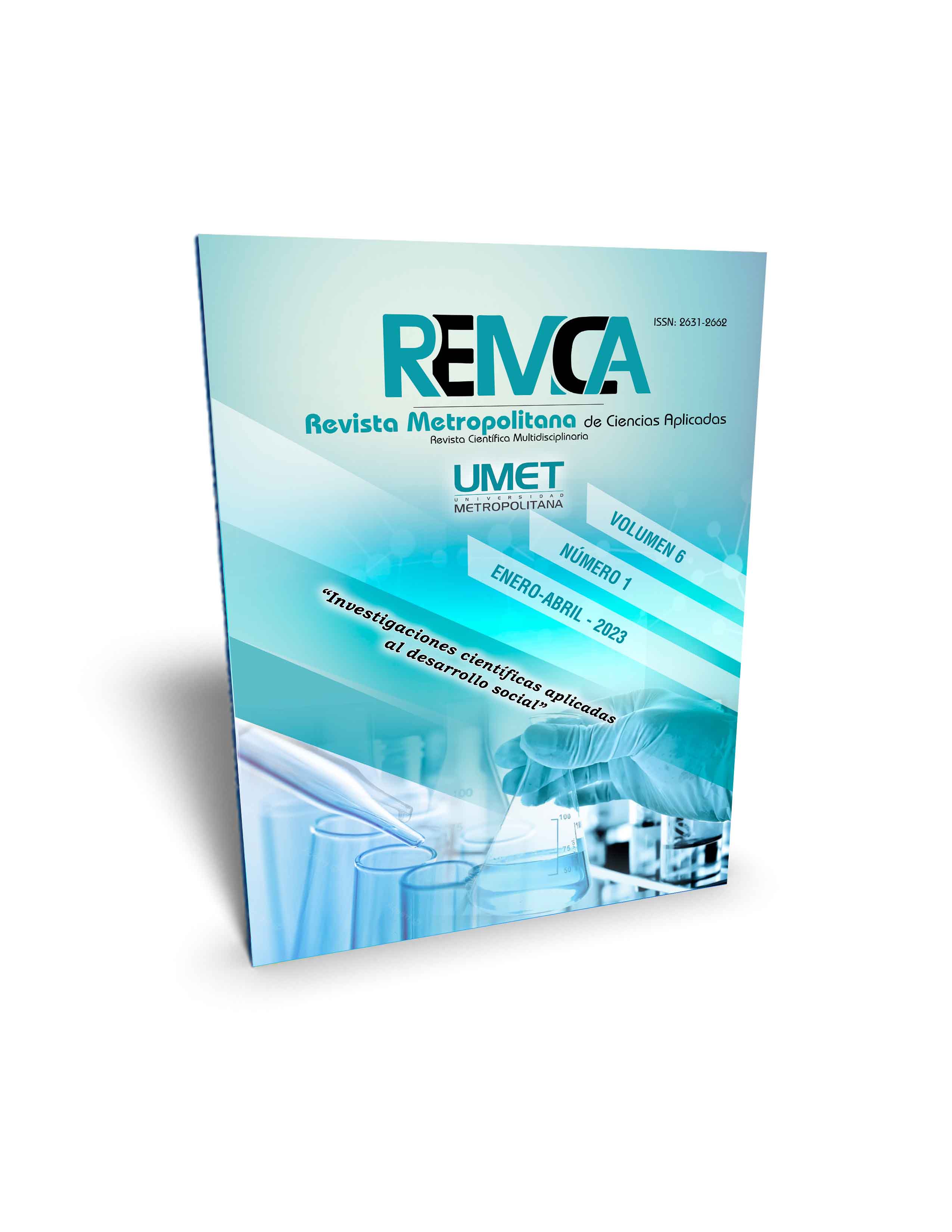Cooperative learning and its relationship with factors of the teaching-learning process in university students
DOI:
https://doi.org/10.62452/av8my871Keywords:
Cooperative learning, factors, teaching processAbstract
The objective of this research is to determine the relationship between cooperative learning and the factors of the teaching-learning process in the students of the Pedagogy of Physical Activity and Sport career of the Faculty of Physical Culture at the Central University of Ecuador, academic period 2021-2022. The dimensions considered in the cooperative learning variable are basic elements and techniques, while in the variable factors of the teaching-learning process are considered: cognitive, affective and social factors. The research is descriptive-correlational in nature. A survey was applied to 133 students divided proportionally according to the semester. The results show that there is a high positive correlation between the independent variable and the dependent variable, so it is concluded that the null hypothesis is rejected and the researcher's hypothesis that there is a relationship between cooperative learning and the factors of the teaching-learning process that favor the development of knowledge, promote interpersonal relationships, strengthen intrapersonal skills, necessary to obtain meaningful learning and exclude education with traditional funds is accepted.
Downloads
References
Azorín, C. (2018). El método de aprendizaje cooperativo y su aplicación en las aulas. Perfiles educativos, 40 (161), 273-296.
Bermejo Díaz, J. M., Pulido Salas, D., Galmés Panadés, A. M., Serra Payeras, P., Vidal Conti, J., & Ponseti Verdaguer, F. J. (2021). Educación física y universidad: Evaluación de una experiencia docente a través del aprendizaje cooperativo (Physical Education and university: Evaluation of a teaching experience through cooperative learning). Retos, 39, 90–97.
Bustamante, J. (2017). El aprendizaje cooperativo: Una competencia imprescindible en Educación Superior. Educación Superior, 2(1).
Curiel, L., Ojalvo, V., & Cortizas, Y. (2018). La educación socio-afectiva en el proceso de enseñanza aprendizaje. Revista Cubana de Educación Superior, 37(3).
De la Torre, L. & Domínguez, J. (2012). Las TIC en el proceso de enseñanza aprendizaje a través de los objetos de aprendizaje. Revista cubana de Informática Médica, 4(1), 83-92.
Domingo, J. (2008). El aprendizaje cooperativo. Cuadernos de trabajo social, 21, 231-246.
García, R., Traver, J. A., & Candela, I. (2001). Aprendizaje cooperativo. Fundamentos, características y técnicas. CCS.
Herrera, E., Medina, A., & Naranjo, G. (2010). Tutoría de la Investigación Científica. Gráficas Corona.
Marqués, P. (2001). El aprendizaje: requisitos y factores. Operaciones cognitivas. Roles de los estudiantes. http://peremarques.net/actodidaprende3.htm
Méndez, E., Páez, A., & Méndez, B. (2018). Procesos de enseñanza-aprendizaje cooperativos que aplican los docentes universitarios. Conrado, 14(63), 319-327.
Perazas Zamora, C., Gil López, Y., Pardo García, Y., & Soler Cruz, L. (2017). Caracterización de los medios de enseñanza en el proceso de enseñanza- aprendizaje en la Educación Física. PODIUM - Revista de Ciencia y Tecnología en la Cultura Física, 12(1), 4-11.
Pliego, N. (2011). El aprendizaje cooperativo y sus ventajas en la educación intercultural. Revista educativa Digital, 8, 63-76.
Vivero-Cedeño, N., Toala-Alarcón, M., & Macías-Loor, M. (2018). El aprendizaje cooperativo en el proceso de enseñanza aprendizaje de la escritura del idioma académico inglés como lengua extranjera. Polo del conocimiento, 3(12), 160-175.
Downloads
Published
Issue
Section
License
Copyright (c) 2023 Víctor Andrés Goñi-Saldaña, Nataly Andrea Cáceres-Santacruz, Rafael Cáceres-Santacruz (Autor/a)

This work is licensed under a Creative Commons Attribution-NonCommercial-ShareAlike 4.0 International License.
Authors who publish in Revista Metropolitana de Ciencias Aplicadas (REMCA), agree to the following terms:
1. Copyright
Authors retain unrestricted copyright to their work. Authors grant the journal the right of first publication. To this end, they assign the journal non-exclusive exploitation rights (reproduction, distribution, public communication, and transformation). Authors may enter into additional agreements for the non-exclusive distribution of the version of the work published in the journal, provided that acknowledgment of its initial publication in this journal is given.
© The authors.
2. License
The articles are published in the journal under the Creative Commons Attribution-NonCommercial-ShareAlike 4.0 International License (CC BY-NC-SA 4.0). The terms can be found at: https://creativecommons.org/licenses/by-nc-sa/4.0/deed.en
This license allows:
- Sharing: Copying and redistributing the material in any medium or format.
- Adapting: Remixing, transforming, and building upon the material.
Under the following terms:
- Attribution: You must give appropriate credit, provide a link to the license, and indicate if any changes were made. You may do this in any reasonable manner, but not in any way that suggests the licensor endorses or sponsors your use.
- NonCommercial: You may not use the material for commercial purposes.
- ShareAlike: If you remix, transform, or build upon the material, you must distribute your creation under the same license as the original work.
There are no additional restrictions. You may not apply legal terms or technological measures that legally restrict others from doing anything the license permits.




